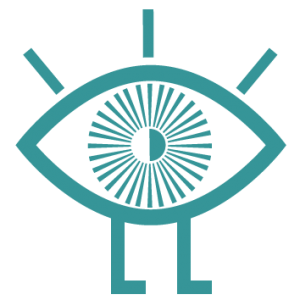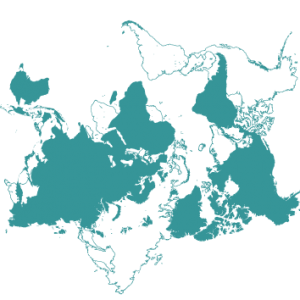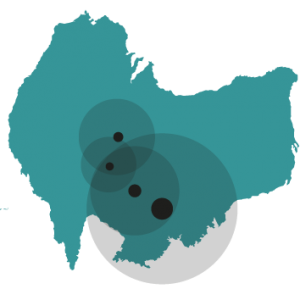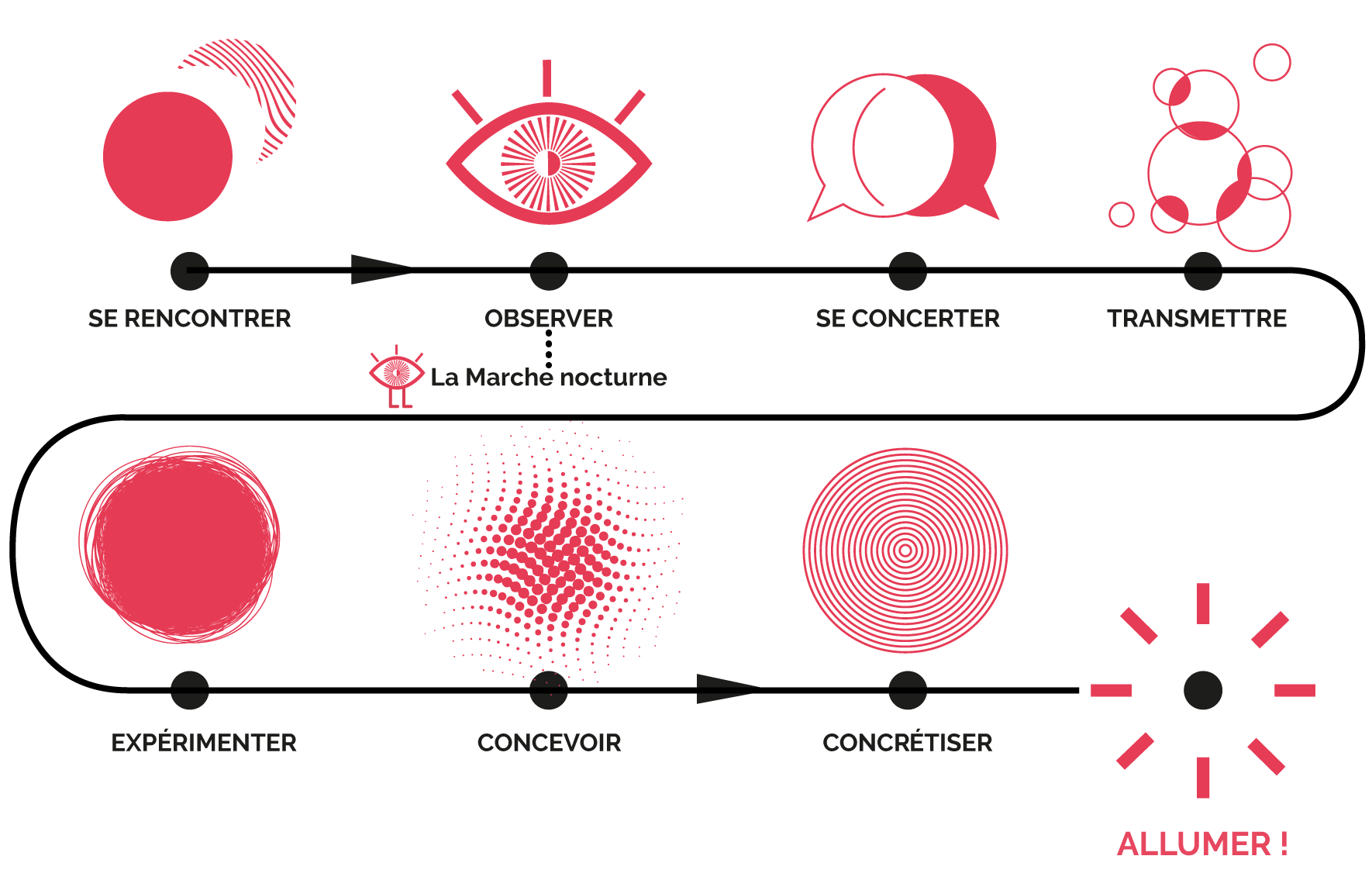THE ASSOCIATION LDWB
Lighting Designers Without Frontiers is an association governed by the law of July 1st 1901
The Association aims to:
– Promote lighting design in humanitarian projects.
– Help the establishment of the lighting designer profession in countries where it does not exist by providing appropiate trainings.
– Encourage local initiatives for a better environment at night.
– Consider the potential roles of light in emergency situations or during major crises.
– Develop innovative proposals that address the economic difficulties, the lack of energy, the sustainable development needs, the simplicity of places and the local cultures.

Our approach
Human aspect
Initiating lighting projects at the request of local people, based on their uses, cultures and customs and making use of local expertise. From the start of a project, transfer of knowledge to local people is part of the aim to get local players involved in the installations in order to guarantee durability.
Functional and life-enhancing aspect
Drafting specifications that meet predefined uses. Submitting lighting solutions that cover both the functional aspect and the enhancement of public areas. Envisaging an economy of means to increase the quality of people’s perception and create synergy between skills rather than merely providing ready-made solutions.
Energy aspect
Designing systems that are environmentally-friendly and cost-effective in terms of energy use.
Training aspect
Teaching the design and use of lighting systems in places where this trade does not exist.
Strategic aspect
Networking knowledge and contacts to generate financial aid and sponsorship.

Without borders
A lighting designer works with natural and artificial light to provide long-term lighting in public areas. His aim is to promote high-quality lighting as part of sustainable development.
Work “without borders”
A large number of professionals have been engaged in humanitarian work for many years in sectors such as healthcare (Doctors without Borders), the media (Reporters without Borders), energy (Electricians without Borders), architecture (Emergency Architects) and entertainment (Clowns without Borders).
Given the difficulties facing entire populations who are subjected on a daily basis to a lack of resources, the violence of a conflict or a natural disaster, the provision of lighting meets a need often expressed by ordinary people. In extreme cases, the immaterial and symbolic dimension of light in the midst of darkness also makes sense.
The action of Lighting Designers without Borders is part of the changing face of humanitarian aid, a sector which now seeks to create a glimmer of hope and undertake actions with long-lasting effects rather than just providing operational assistance.

Areas of intervention
In an emergency, during a major crisis
As professionals, working with energy experts to find out the lighting needs required for the emergency services and to provide ambient lighting to boost the population’s morale.
In post-emergency situations
For those who have undergone extremely traumatic events, intelligently and sensitively designed lighting will help them to rebuild their lives.
As part of regional development
Lighting Designers without Borders aims to develop consistency between projects that are expanding to include every possible human and economic situation, with a view to providing worldwide sustainable development. Well-planned lighting that complies with local needs can improve everyday life and have a profound effect on public spaces. It can also help to create an identity.
LIGHTING DESIGN PROCESSING
8 Steps to a lighting design project

Selection Commission and Ethics Committee
Lighting Designers Without Borders intervenes thanks to consulting and training, and responds to precise demands of lasting lighting projects.
Every request involves a file from the initiators, reported by an initiator, member of the association.
ETHICS CRITERIA
An Ethics Committee examines the requests.
– We support projects promoting public interest, represented by a local government or association.
– We do not interfere in the activity of the organization which made the request, unless it is about the lighting project.
– Our actions cannot be part of any direct commercial and financial negotiations, or any self-enrichment of both parts.
– We do not take action for any private or commercial purposes.
– We do not allow proselytism. The lighting of a place of worship can only be considered if everyone can see it and if there is an architectural interest.
– We do not work on projects in which lighting highlights the symbol of an order, organization or association which obviously does not seek humanist public interest.
SELECTION CRITERIA
A selection committee examines the requests.
Geographical limits of intervention
– We take action in destitute countries in difficulty as a priority, where social and structural inequalities are strong.
– In democracies with strong social inequalities, if needs in lighting design can be met by public authorities, we cannot interfere in the choices of a government or its financial decisions. However, we can help those concerned to formulate their requests.
– Our action can only take place after all guarantees that people and goods are protected, as far as the lighting project is concerned.
– At any time, we can temporarily or definitively go out of a project. In this case, the organization we work for cannot appeal to any non-material damage nor ask for any financial compensation.
– The main criteria bring out social, economic and cultural interests.
– Projects have to take into consideration sustainable development and local traditions.
PROJECT’S APPROVAL
Approvals, refusals of a project, or review requests are decided according to the association’s conditions.
Between complete refusal and approval without conditions, there are:
– Approval with reservations
– Review of the entire project
Every project will be submitted to an approval procedure defining the relations between all parts.
ADMINISTRATIVE STATUTES LDWB
The association is composed of:
– Honorary members
– Contributing members
– Active members
– Institutional members
MEMBERS
– Honorary members are those who did the association a significant service. They do not need to pay fees.
– Contributing members are those who pay a 10€ admission fee and an annual fee set by the Board of Directors every year.
Contributing members do not have the right to vote.
– Active members agreed to pay an annual fee set by the Board of Directors.
Anyone who wants to take part in the association’s activities can become an active member.
Active members have the right to vote.
– Institutional members are every artificial person (public or private institution, association) which activities are directly or indirectly related to the association’s scope of action. The Board of Directors will set the annual fee case by case.
Institutional members do not have the right to vote.
Active members personally commit to the ideals, goals, ethics and intentions of the association. They cannot claim to represent a firm, a private or public institution.
LDWB MEMBERSHIP
This page allows you to finalize your membership in LDWB
Honorary member (€ 100) Benefactor member (€ 1000) Active member (€ 15)
calendar renewal – no refund possible
